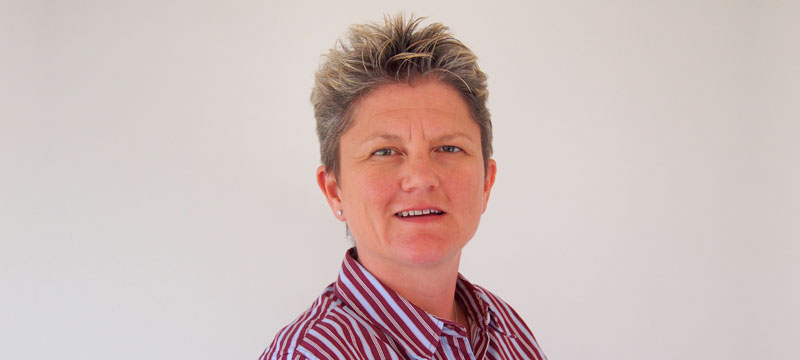A pioneering New Zealand medical innovator, BioOra, is to embark on a capital raise to accelerate its groundbreaking automated platform that reprograms blood cells to fight cancer.
(8 November, 2023) The therapy is truly personalised where
BioOra uses a patient’s own immune cells (T-cells) and reprograms them in the laboratory to directly identify and kill cancer cells once reinfused back into the patient.
“We insert a receptor into the immune cells so that they only recognise the cancer cells in the patient’s body. The T-cells then circulate in the body, attack and kill any cancer cells they find,” BioOra CEO Andi Grant says.
The startup is the only licensed manufacturer of chimeric antigen receptor (CAR-T) cell therapeutics in New Zealand and has a vision of ‘Cell therapy for every patient in need’. Its goal is to democratise access to these treatments. Its automated technology is the means to do that effectively and efficiently.
Grant says BioOra is also one of the first companies in the world outside large overseas pharmaceutical companies to create an automated platform to manufacture CAR-T cells. Automating the process provides significant advantages including increased throughput and lower costs, while maintaining quality.
“We are leading; we’re at the forefront, we are one of those kiwi innovators that is punching above its weight,” Grant says. “Whilst nothing is ever a panacea, we’ve seen cancer patients who have run out of treatment options going into complete remission with therapies that are available overseas.”
BioOra was formed in 2021 by the Malaghan Institute of Medical Research and Bridgewest Ventures as part of Callaghan Innovation’s Technology Incubator Programme. Callaghan Innovation provided BioOra with access to investment funding through their programme, and Bridgewest provided investment capital and wrap-around services to support the growth of the company. The Malaghan Institute was the original founder of the technology, and their therapies will be the first to be delivered to patients using the BioOra platform.
Until now, CAR-T cells have been produced using a time-intensive manual process requiring many hours of skilled operator time inside one specialised clean room for each patient’s dose. BioOra changes that.
“What we have developed is a closed, automated process where we can run multiple patients’ products in the same room, and because the process is automated, we reduce the amount of skilled labour hours required for one patient’s dose. All of this means more patients are treated at a lower cost per patient,” Grant explains.
At the heart of the automated process is a futuristic looking pod known as the “Cocoon”. BioOra is the first company in the Southern Hemisphere to obtain the Good Manufacturing Process (GMP) license and manufacture real world patient doses on this platform.
Globally, many thousands of cancer patients can benefit from this treatment, but due to the high cost of manufacturing and the cumbersome clinical access, most can’t.
Grant says affordability and accessibility of cell therapies is both a New Zealand and global problem, largely caused by overseas companies adopting high cost, labour and capital intensive clinical, manufacturing and distribution models.
“BioOra is applying smart, digital, decentralised and automated clinical and manufacturing approaches here in New Zealand. The goal, first and foremost, is to ensure affordable access to therapies for New Zealanders. We also see enormous commercial opportunity in licensing our process and platforms globally to other partners who want to treat the maximum number of patients and rapidly grow their market share.”
Malaghan Institute has conducted a Phase 1 clinical trial, known as “ENABLE”, testing a CAR-T therapy for the treatment of lymphoma, a specific kind of blood cancer. The trials are at an advanced stage with 24 patients treated. The trial is led by Dr. Robert Weinkove, a Consultant Haematologist based in Wellington.
BioOra is the commercialisation partner for Malaghan’s CAR–T cell therapy with the role of manufacturing the products and providing the regulatory and commercial expertise to bring them to market.
“Although the launch of this therapy is at least two years away, the capital raise is an important piece to extend our technology and capabilities in readiness for launch, and to take our groundbreaking platforms to the world,” says Grant.
BioOra Director John Robson, also the General Manager of Bridgewest Ventures, says the automation of CAR T-cell therapy will fundamentally transform how this therapy is delivered.
“Automation will allow us to bring more innovative therapies to New Zealand. Our goal is to make New Zealand a leading provider of CAR T-cell treatments by attracting developers of best-in-class therapies to access cost-effective manufacturing at BioOra for CAR T-cell clinical trials or future standard of care therapies,” says Robson.
“We can go from one high grade expensive facility per patient to having 20 to 30 patient doses being produced in a single room and treating 900 patients a year, just out of New Zealand,” Grant adds.
As an entrepreneur, Grant has had to wear several hats. She has had to come to grips with emerging technology, business, people management, growth, and partnering with Government. But Grant says the most important entrepreneurial skills one must have in growing a startup like BioOra are resilience and emotional intelligence.
“The pressure and the expectations in each stage are immense. We are one of a collection of companies in New Zealand who are at the frontier on a world stage.”
Story by Dave Crampton, #nzentrepreneur
